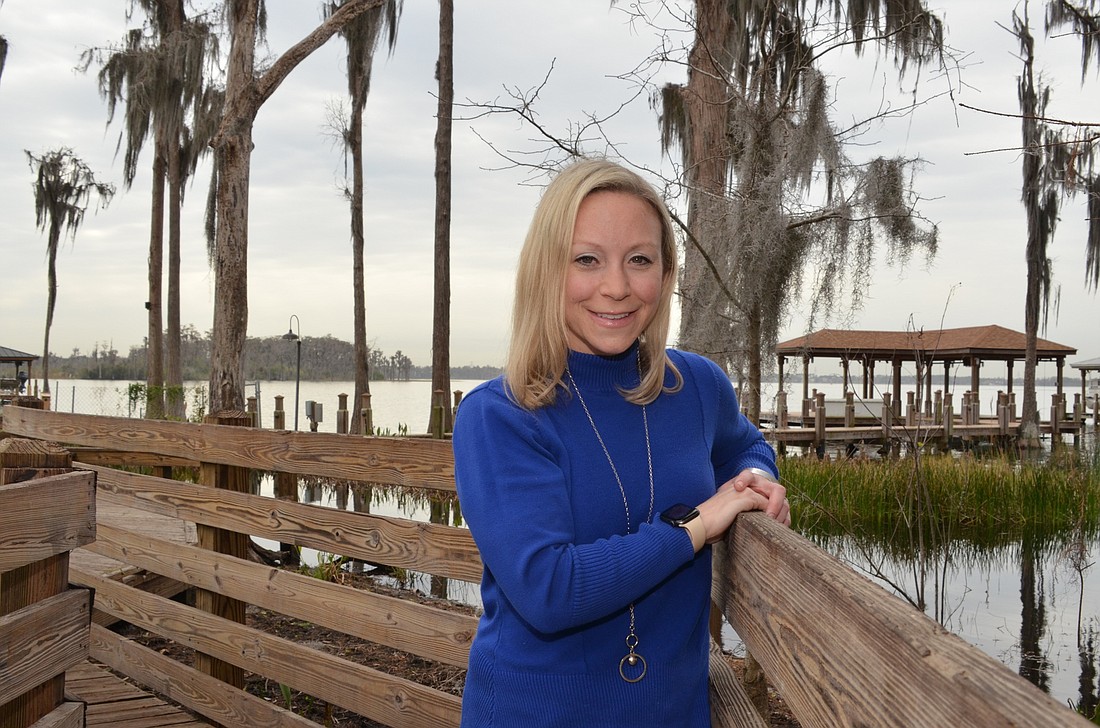- April 18, 2024
-
-
Loading

Loading

When Chrissy Love was growing up, all her food tasted like cardboard.
“I never knew any different; I just dealt with it,” the West Orange resident said. “The food that you need to survive just tasted so horrible. That was my reality, and that was fine.”
Love, 39, was diagnosed with phenylketonuria at birth after the mandatory “heel-prick” blood test performed on newborns. People with the disorder cannot metabolize one of the amino acids in protein, so an altered diet is mandatory for healthy survival. She never ate what her friends ate during school lunches or what the family ate at the dinner table.
“My mom did her best to make me feel normal,” she said. “I didn’t want anyone’s pity. … I think it became even more challenging when I had to take over myself and when I went to college. I had to watch what I put in my mouth, and I had to prepare it. … It was another element of my life that I wasn’t prepared to handle.”
When Love is invited to a party, she eats before or after — unless there’s a veggie tray, but even then, she must avoid the high-protein foods, such as broccoli.
At home, if she’s in the mood for pasta, she opens up her $12 box of spaghetti.
Rare Disease Week on Capitol Hill is Feb. 25 through 28, and Love is going to Washington, D.C., with the National PKU Alliance to lobby in favor of the Medical Nutrition Equity Act. If passed, the act would provide for the coverage of medically necessary food, vitamins and individual amino acids for digestive and inherited metabolic disorders.
“It’s basically to get food coverage,” Love said. “It would make Medicaid and Medicare pay for these things. It’s not a luxury. … It’s very, very expensive. … I don’t think anyone in their right mind would pay $12 for a box of pasta.”
But that’s what Love has to do if she wants to live on a more diverse diet.
There are varying degrees of PKU, and people can be limited to anywhere from 2 to 15 grams of protein a day. Love can have 4 grams.
According to USDA dietary guidelines, the average adult woman should consume 46 grams of protein daily.
She logs everything she eats; being meticulous saves her life.
Love is the mother of three children, 10-year-old twins and an 8-year-old, and none inherited the disorder.
“They’re all healthy and thriving and fine, by the grace of God,” she said.
Being pregnant and having proteins limited even further was a challenge but manageable. However, with three children under age 3, Love found herself taking care of her babies more than herself. About three years ago, she started feeling symptoms that mirror multiple sclerosis or Parkinson’s disease — and she was devastated.
There are several products on the market that act as the enzyme lacking in people such as Love. She gives herself a daily injection.
“I never wanted to take a needle every day, but if I can function, then that’s two seconds of my day that I’m doing that,” Love said. “I wanted to have quality of life rather than quantity of days. … My body went through some symptoms until my body got used to it.”
She drinks a pharmaceutical protein shake several times a day to avoid tremors.
Love’s children are without the disorder, but her older brother also has PKU — discovered after a misdiagnosis of cerebral palsy.
“(The) heel prick is done on all babies in the hospital, and it tests for over 35 metabolic and genetic disorders that, without this screening process, you might not ever know they had this until later when they suffer symptoms,” Love said.
Her diagnosis years ago is what led her to her passion.
She is a NICU nurse at Nemours Children’s Hospital and part of a research team for rare diseases. Every three months she travels to Michigan as an advocate, as a patient and as a nurse.
In addition to the trip to Washington, Love is going in May to Seattle to promote the importance of the newborn screening and why continued funding is essential.
“My goal is to educate and spread awareness of it,” Love said. “If my story for someone can be inspired by it, that’s why I put it out there.”